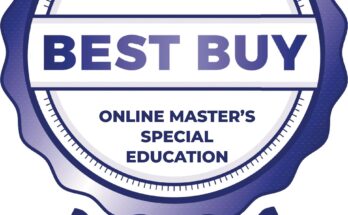As an aspiring educational psychologist, I’ve long been fascinated by the intricate relationship between learning, development, and the educational environment. The field of educational psychology has the power to transform lives, and when I discovered the flexibility and convenience of educational psychology degrees online, I knew it was the path for me.
Understanding the Foundations of Educational Psychology
Educational psychology is a dynamic field that delves into the psychological principles underlying learning and development within educational settings. At its core, this discipline explores how individuals process information, acquire new skills, and navigate the complexities of the learning journey. From understanding learning styles and cognitive development to designing effective assessment strategies, educational psychologists play a crucial role in shaping the educational landscape.
As an educational psychologist, I’m driven by the desire to unlock each student’s full potential. By applying the latest research and evidence-based practices, I can collaborate with educators to create learning environments that cater to diverse needs and foster academic success. Whether it’s supporting struggling students, designing innovative curricula, or informing educational policies, the work of an educational psychologist has a far-reaching impact.
Navigating the Path: Educational Psychology Degrees Online
When I decided to pursue an educational psychology degree, the flexibility and accessibility of online programs were immediately appealing. As a working professional with family commitments, the ability to balance my studies with my other responsibilities was a game-changer.

Master’s in Educational Psychology: Laying the Foundation
For those interested in a more hands-on, applied approach to educational psychology, a master’s degree is an excellent choice. These programs typically cover a comprehensive curriculum, including coursework in learning theories, assessment techniques, and research methods. I was particularly drawn to the opportunity to explore topics like child development, educational technology, and special education needs, as they aligned with my passion for supporting diverse learners.
Upon completing a master’s program, I’ll be well-equipped for roles such as school counselor, instructional designer, or research assistant. These positions allow me to directly impact the lives of students, whether it’s guiding them through academic or emotional challenges or designing engaging learning experiences.
Doctoral Programs: Advancing the Field
For those interested in a more research-oriented path, a doctoral program in educational psychology offers an opportunity to delve deeper into theoretical frameworks and contribute to the academic field. These programs typically require a significant commitment to research, including the completion of a dissertation that adds new knowledge to the discipline.
As a doctoral candidate, I’ll have the chance to specialize in areas that align with my interests, such as learning disabilities, educational technology, or social-emotional learning. This level of specialization will enable me to become a true expert in my chosen subfield, positioning me for roles as a university professor, educational consultant, or high-level researcher.
Choosing the Right Online Educational Psychology Program
When selecting an online educational psychology program, I’ve learned that it’s essential to consider several key factors to ensure a perfect fit.

Accreditation and Institutional Reputation
Accreditation is a crucial indicator of quality, and I’ve prioritized programs accredited by respected organizations like the Council for the Accreditation of Educator Preparation (CAEP). Additionally, attending a well-respected institution with a strong reputation in educational psychology can enhance my career prospects and provide access to a valuable network of professionals.
Curriculum and Specializations
As I’ve explored various online programs, I’ve paid close attention to the curriculum and the availability of specialized tracks. I’m particularly interested in finding a program that offers a curriculum aligned with my career goals, whether that’s trauma-informed practices, educational technology, or social-emotional learning.
Faculty Expertise and Support
The qualifications and expertise of the faculty members can significantly impact the quality of the educational experience. I’ve made it a point to research the faculty’s backgrounds, ensuring they have the necessary experience and a track record of research or practical application in the field of educational psychology. Additionally, I’ve looked for programs that offer comprehensive support services, such as academic advising, tutoring, and career counseling, to enhance my online learning journey.
Flexibility and Learning Format
As a working professional, the flexibility offered by online educational psychology programs is a critical factor for me. I’m drawn to programs that provide asynchronous coursework, allowing me to complete assignments at my own pace and on my own schedule. The availability of virtual residencies or online discussions is also an important consideration, as they facilitate engagement and collaboration with my peers and instructors.
Financial Considerations
Of course, the cost of the program is a significant factor, and I’ve compared tuition rates across various institutions. I’m also actively exploring financial aid options, including scholarships, grants, and potential employer tuition assistance programs, to make my educational goals more accessible.
Shaping the Future of Education
With an educational psychology degree, the possibilities are vast and exciting. From serving as a school psychologist, addressing the unique needs of students, to designing innovative instructional materials as an instructional designer, the impact of this field is undeniable.
For those aspiring to contribute to the academic world, a doctoral degree in educational psychology opens the door to exciting research and teaching opportunities. As a future educational psychology professor, I’ll have the chance to shape the next generation of educators, while also conducting cutting-edge research that informs educational policies and practices.
Preparing for Success: Tips for Online Learners
As I embark on my online educational psychology journey, I’ve learned the importance of developing effective strategies to thrive in this dynamic learning environment.
Time Management: The Key to Balancing Priorities
Effective time management is crucial when pursuing an online degree. I’ve found it helpful to create a structured schedule, allocating dedicated study time and setting realistic goals to stay on track. By proactively organizing my responsibilities, I can ensure that I make the most of my online learning experience without sacrificing other important aspects of my life.
Embracing Online Engagement
Active participation in online discussions has been a game-changer for me. By sharing my insights, asking questions, and collaborating with my peers, I’ve not only deepened my understanding of the course material but also built valuable connections within the educational psychology community.
Building a Professional Portfolio
As I progress through my educational psychology program, I’m also focused on developing a comprehensive professional portfolio. This collection of my best work, research projects, and relevant experiences will be an invaluable asset when seeking employment or networking within the field.
FAQ
Q: What is the difference between a school psychologist and an educational psychologist?
A: While both fields focus on education, school psychologists primarily work directly with students, providing assessments, counseling, and interventions. Educational psychologists, on the other hand, tend to focus more on research, program development, and the broader application of psychological principles within educational settings.
Q: Do I need a master’s degree to become a school psychologist?
A: In most states, a master’s degree in school psychology or a related field, along with specific licensure requirements and supervised experience, is necessary to practice as a school psychologist.
Q: What are the typical salary expectations for educational psychologists?
A: Salaries for educational psychologists can vary based on factors such as location, level of experience, and the specific role. However, those with advanced degrees and specialized expertise in the field generally command competitive wages.
Q: Are there scholarships available for online educational psychology programs?
A: Yes, many universities offer scholarships and financial aid options specifically for online students. It’s essential to research the available opportunities to help offset the cost of pursuing an educational psychology degree online.
Conclusion
As I reflect on my journey into the world of educational psychology, I’m filled with a sense of excitement and purpose. The flexibility and accessibility of online programs have made it possible for me to pursue my passion without sacrificing other important aspects of my life. By carefully selecting an accredited program that aligns with my career goals and learning preferences, I’m confident that I’ll be equipped to make a meaningful impact in the field of education.
Whether I choose to work directly with students as a school psychologist, design innovative learning experiences as an instructional designer, or contribute to the academic landscape as a researcher and professor, the opportunities within educational psychology are truly boundless. I’m eager to embark on this rewarding path, knowing that with the right online program and a strategic approach, I can unlock my full potential and shape the future of education.



